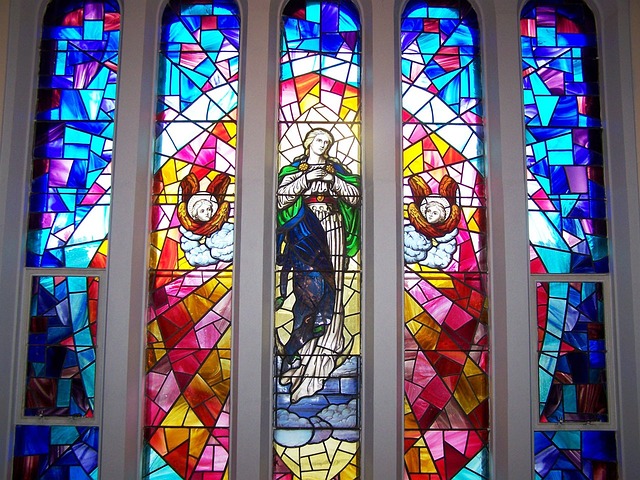Ascension in the Catholic Church refers to the belief that Jesus Christ physically ascended into Heaven in the presence of his disciples after his resurrection. This event is commemorated on Ascension Thursday, which falls 40 days after Easter Sunday. The Ascension is a key event in Christian theology as it signifies Jesus’ return to the Father and his exaltation as Lord and Savior.
Table of Contents
Understanding the Concept of Ascension in Catholic Theology
Have you ever heard the term “Ascension” in the context of the Catholic Church and wondered what it means? Ascension is a key concept in Catholic theology that refers to the belief that Jesus Christ ascended into heaven after his resurrection. This event is celebrated by Catholics around the world and holds significant importance in the Christian faith.
The Ascension of Jesus is described in the Bible, specifically in the books of Luke and Acts. According to these accounts, after his resurrection, Jesus appeared to his disciples over a period of forty days, teaching them about the kingdom of God. On the fortieth day, he led them to the Mount of Olives, where he blessed them and ascended into heaven in their presence.
This event is seen as a demonstration of Jesus’ divinity and his victory over sin and death. It is also a sign of his continuing presence with his followers, as he promised to send the Holy Spirit to guide and empower them in his absence. The Ascension is therefore a source of hope and encouragement for Catholics, reminding them of the ultimate triumph of Christ and the promise of eternal life.
In Catholic theology, the Ascension is closely linked to the doctrine of the Incarnation, which teaches that Jesus is both fully human and fully divine. The Ascension affirms the reality of Jesus’ humanity, as he ascended into heaven in his glorified body, while also affirming his divinity, as he returned to the Father from whom he came.
The Ascension is also connected to the doctrine of the Trinity, which teaches that God is one in essence and three in persons – Father, Son, and Holy Spirit. In ascending to heaven, Jesus returned to the Father, where he now intercedes for his followers and reigns as Lord and King. This belief in the exaltation of Christ is central to Catholic faith and worship, as it affirms his sovereignty over all creation and his role as the mediator between God and humanity.
For Catholics, the Ascension is not just a historical event but a living reality that shapes their understanding of God and their relationship with him. It is a reminder that Jesus is present with them always, guiding and sustaining them through the power of the Holy Spirit. It is also a call to mission and service, as they are commissioned to proclaim the good news of salvation to all nations.
The Ascension is celebrated by Catholics on the feast of the Ascension, which falls forty days after Easter. This feast is a joyful occasion marked by prayer, worship, and reflection on the significance of Jesus’ ascension into heaven. It is a time to give thanks for the gift of salvation and to renew one’s commitment to following Christ in faith and obedience.
In conclusion, the Ascension is a central tenet of Catholic theology that affirms the divinity and humanity of Jesus Christ and his continuing presence with his followers. It is a source of hope and encouragement for Catholics, reminding them of the ultimate victory of Christ over sin and death. It is a call to mission and service, as they are commissioned to proclaim the good news of salvation to all nations. May we always remember the significance of the Ascension in our faith and live out its implications in our daily lives.
The Significance of Jesus’ Ascension in Catholic Beliefs
Have you ever heard the term “Ascension” in the context of the Catholic Church? If you’re not quite sure what it means, you’re not alone. Ascension is a significant event in Catholic beliefs that commemorates the moment when Jesus Christ ascended into heaven. This event holds great importance in the Catholic faith and is celebrated annually on Ascension Thursday, 40 days after Easter Sunday.
The Ascension of Jesus is described in the Bible in the book of Acts, where it is said that Jesus was taken up into heaven in the presence of his disciples. This event marks the completion of Jesus’ earthly ministry and his return to the Father. It is a moment of great joy and triumph for believers, as it signifies Jesus’ victory over sin and death.
The Ascension is also a reminder of Jesus’ promise to his disciples that he would send the Holy Spirit to guide and empower them. This promise was fulfilled on Pentecost, which is celebrated 10 days after the Ascension. The Holy Spirit is seen as the presence of God in the world, guiding and inspiring believers to live out their faith in their daily lives.
The Ascension is not just a historical event that happened 2,000 years ago; it is a living reality that continues to shape the lives of believers today. It reminds us that Jesus is not just a figure from the past, but a living presence in our lives, guiding us and giving us strength to face the challenges of the world.
One of the key teachings of the Catholic Church is the belief in the bodily resurrection and ascension of Jesus. This belief is central to the faith and is a source of hope and comfort for believers. The Ascension is a reminder that death is not the end, but a passage to eternal life with God.
The Ascension also has a practical significance for Catholics in their daily lives. It reminds them of their ultimate goal, which is to be united with God in heaven. This hope gives them strength and courage to face the trials and tribulations of life, knowing that they are not alone, but that Jesus is with them, guiding and protecting them.
In conclusion, the Ascension of Jesus is a central event in Catholic beliefs that holds great significance for believers. It is a moment of triumph and joy, marking Jesus’ return to the Father and his promise to send the Holy Spirit. The Ascension is a reminder of Jesus’ victory over sin and death, and his promise of eternal life for all who believe in him. It is a source of hope and comfort for believers, guiding them in their daily lives and reminding them of their ultimate goal of union with God in heaven.
Exploring the Biblical Basis for the Ascension in Catholic Doctrine

Have you ever heard of the term “Ascension” in the Catholic Church? If you’re not quite sure what it means, don’t worry – you’re not alone. Ascension is a significant event in Catholic doctrine that commemorates the bodily ascension of Jesus Christ into heaven. This event is celebrated 40 days after Easter Sunday, marking the end of Jesus’ earthly ministry and the beginning of his eternal reign in heaven.
The Ascension of Jesus is rooted in the Bible, specifically in the Gospels of Luke and Acts. In Luke 24:50-51, it is written that Jesus led his disciples out to Bethany, blessed them, and then ascended into heaven. The disciples were left in awe, gazing up at the sky as Jesus disappeared from their sight. This moment marked the end of Jesus’ physical presence on earth and the beginning of his spiritual presence in the hearts of believers.
In Acts 1:9-11, the Ascension is further described as Jesus being lifted up into the clouds, with two angels appearing to reassure the disciples that Jesus will return in the same way he ascended. This passage emphasizes the importance of the Ascension as a key event in the Christian faith, signaling Jesus’ exaltation and his promise to come again in glory.
The Ascension holds great significance for Catholics as it affirms Jesus’ divinity and his role as the Son of God. It also serves as a reminder of Jesus’ victory over sin and death, as he ascended into heaven to prepare a place for his followers. This event is a source of hope and comfort for believers, knowing that Jesus is interceding for them in heaven and will one day return to establish his kingdom on earth.
The Ascension is also a call to mission for Catholics, as Jesus commanded his disciples to go forth and spread the Good News to all nations. This commission is known as the Great Commission and is a central aspect of Catholic evangelization. By following Jesus’ example and sharing his message of love and salvation, Catholics are called to be witnesses of the Ascension and bring others into relationship with Christ.
The Ascension is not just a historical event that happened 2,000 years ago – it is a living reality that continues to shape the faith and practice of Catholics today. Through the celebration of the Ascension, believers are reminded of their ultimate destiny in heaven and are encouraged to live out their faith with joy and hope. The Ascension is a source of strength and inspiration for Catholics, as they strive to follow Jesus’ example and build his kingdom on earth.
In conclusion, the Ascension is a central tenet of Catholic doctrine that celebrates the exaltation of Jesus Christ and his promise to return in glory. Rooted in the Bible and affirmed by centuries of tradition, the Ascension is a key event in the Christian faith that holds great significance for believers. By understanding the biblical basis for the Ascension, Catholics can deepen their appreciation for this sacred event and draw closer to Jesus, who reigns in heaven as their Lord and Savior.
How Ascension is Celebrated and Commemorated in the Catholic Church
Ascension is a significant event in the Catholic Church that commemorates the moment when Jesus Christ ascended into heaven. This event is celebrated 40 days after Easter Sunday, marking the end of Jesus’ earthly ministry and the beginning of his eternal reign in heaven. The Ascension is a pivotal moment in the Christian faith, as it signifies Jesus’ victory over sin and death, and his return to the Father.
In the Catholic Church, Ascension is celebrated with great reverence and joy. It is a time for believers to reflect on the significance of Jesus’ ascension and to renew their commitment to following his teachings. Many churches hold special services and Masses to mark the occasion, with readings and prayers that focus on the themes of redemption, salvation, and eternal life.
One of the key aspects of the Ascension is the belief that Jesus is now seated at the right hand of God, interceding on behalf of all believers. This belief is central to the Catholic faith, as it underscores the idea that Jesus is not only a historical figure but also a living presence in the lives of his followers. The Ascension serves as a reminder that Jesus is always with us, guiding and supporting us in our journey of faith.
During the Ascension, Catholics also reflect on the mission that Jesus entrusted to his disciples before he ascended into heaven. This mission, known as the Great Commission, calls on believers to go forth and spread the good news of salvation to all nations. The Ascension is a time for Catholics to recommit themselves to this mission, by sharing their faith with others and living out the teachings of Jesus in their daily lives.
In addition to attending Mass and participating in special services, Catholics also commemorate the Ascension through various traditions and customs. One common practice is the lighting of candles, which symbolizes the light of Christ shining in the darkness of the world. Many churches also hold processions or parades to mark the occasion, with believers carrying banners and singing hymns of praise.
Another popular tradition is the blessing of fields and crops, which is done in honor of Jesus’ role as the divine farmer who sows the seeds of faith in the hearts of believers. This tradition is especially common in rural areas, where agriculture plays a central role in the community. By blessing the fields, Catholics seek to invoke God’s protection and guidance over the harvest season.
Overall, the Ascension is a time of great joy and celebration in the Catholic Church. It is a time to remember the victory of Jesus over sin and death, and to renew our commitment to following his teachings. Through Mass, prayers, and traditions, Catholics commemorate the Ascension and reflect on its significance in their lives. As we look to the heavens and remember Jesus’ ascension into heaven, may we be inspired to live out our faith with courage and conviction, knowing that Jesus is always with us, guiding us on our journey of faith.
The Implications of Ascension for Catholic Faith and Practice
Ascension is a significant event in the Catholic Church that holds deep meaning for believers around the world. It marks the moment when Jesus Christ, after his resurrection, ascended into heaven in the presence of his disciples. This event is celebrated annually on Ascension Thursday, 40 days after Easter Sunday.
For Catholics, the Ascension of Jesus holds great theological significance. It affirms the divinity of Christ and his victory over sin and death. It also serves as a reminder of the promise of eternal life for those who believe in him. The Ascension is a pivotal moment in the life of Jesus and in the history of salvation, as it marks the completion of his earthly ministry and the beginning of his eternal reign in heaven.
The implications of the Ascension for Catholic faith and practice are profound. It serves as a source of hope and inspiration for believers, reminding them of the ultimate goal of their faith – to be united with Christ in heaven. The Ascension also underscores the importance of prayer and worship, as Jesus ascended into heaven while blessing his disciples. This serves as a reminder for Catholics to remain steadfast in their faith and to continue to seek God’s presence through prayer and worship.
Furthermore, the Ascension highlights the mission of the Church to spread the Gospel to all nations. Just before ascending into heaven, Jesus commissioned his disciples to go and make disciples of all nations, baptizing them in the name of the Father, Son, and Holy Spirit. This Great Commission is a call to all Catholics to share the good news of salvation with others and to be witnesses of Christ’s love and mercy in the world.
The Ascension also has implications for the sacramental life of the Church. It is a reminder of the presence of Christ in the Eucharist, where Catholics believe that Jesus is truly present – body, blood, soul, and divinity. The Ascension serves as a reminder of the importance of the Eucharist in the life of the Church and the spiritual nourishment it provides to believers.
In addition, the Ascension serves as a source of comfort and consolation for Catholics in times of trial and suffering. Just as Jesus ascended into heaven, Catholics believe that he intercedes for them before the Father, offering prayers on their behalf. This belief in the intercessory power of Christ provides hope and strength to believers in times of need, knowing that they are not alone in their struggles.
Overall, the Ascension is a central tenet of Catholic faith and practice, reminding believers of the divinity of Christ, the promise of eternal life, and the mission of the Church to spread the Gospel to all nations. It serves as a source of hope, inspiration, and comfort for Catholics around the world, guiding them in their journey of faith and leading them closer to God. As Catholics celebrate the Ascension each year, they are reminded of the profound implications it holds for their lives and their relationship with Christ.
Conclusion
Ascension in the Catholic Church refers to the belief that Jesus Christ physically ascended into Heaven in the presence of his disciples after his resurrection. This event is celebrated on Ascension Thursday, 40 days after Easter Sunday. It is a significant event in Christian theology as it marks the completion of Jesus’ earthly ministry and his exaltation to the right hand of God. The Ascension is seen as a sign of hope and a reminder of the promise of eternal life for believers.


